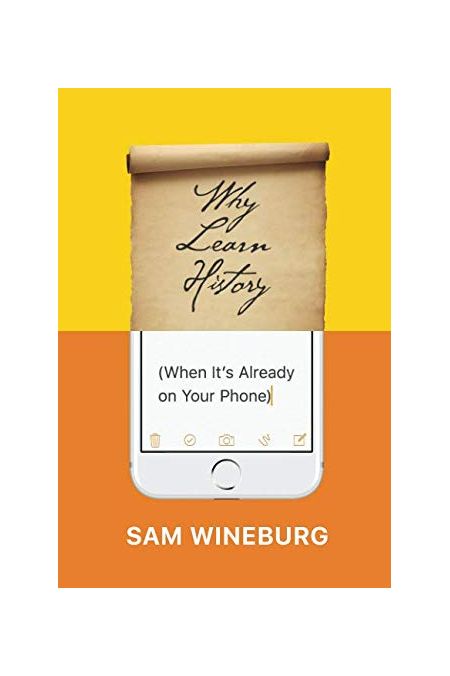Why Learn History (When It\'s Already on Your Phone)

Detalii Why Learn History (When It\'s
Vânzător
libris.ro
Pret
129.2 Lei
129.2 Lei
172.27 Lei
Categorie (vânzător)
History
Marca
Sam Wineburg
Descriere YEO:
Descriere magazin:
Let's start with two truths about our era that are so inescapable as to have become cliches: We are surrounded by more readily available information than ever before. And a huge percentage of it is inaccurate. Some of the bad info is well-meaning but ignorant. Some of it is deliberately deceptive. All of it is pernicious. With the internet always at our fingertips, what's a teacher of history to do? Sam Wineburg has answers, beginning with this: We definitely can't stick to the same old read-the-chapter-answer-the-questions-at-the-back snoozefest we've subjected students to for decades. If we want to educate citizens who can sift through the mass of information around them and separate fact from fake, we have to explicitly work to give them the necessary critical thinking tools. Historical thinking, Wineburg shows us in Why Learn History (When it's Already on Your Phone), has nothing to do with test prep-style ability to memorize facts. Instead, it's an orientation to the world that we can cultivate, one that encourages reasoned skepticism, discourages haste, and counters our tendency to confirm our biases. Wineburg draws on surprising discoveries from an array of research and experiments-including surveys of students, recent attempts to update history curricula, and analyses of how historians, students, and even fact checkers approach online sources-to paint a picture of a dangerously mine-filled landscape, but one that, with care, attention, and awareness, we can all learn to navigate. It's easy to look around at the public consequences of historical ignorance and despair. Wineburg is here to tell us it doesn't have to be that way. The future of the past may rest on our screens. But its fate rests in our hands.

Why Learn History (When It\'s - Disponibil la libris.ro
Pe YEO găsești Why Learn History (When It\'s de la Sam Wineburg, în categoria History.
Indiferent de nevoile tale, Why Learn History (When It\'s Already on Your Phone) din categoria History îți poate aduce un echilibru perfect între calitate și preț, cu avantaje practice și moderne.
Preț: 129.2 Lei
Caracteristicile produsului Why Learn History (When It\'s
- Brand: Sam Wineburg
- Categoria: History
- Magazin: libris.ro
- Ultima actualizare: 15-12-2024 01:42:32
Comandă Why Learn History (When It\'s Online, Simplu și Rapid
Prin intermediul platformei YEO, poți comanda Why Learn History (When It\'s de la libris.ro rapid și în siguranță. Bucură-te de o experiență de cumpărături online optimizată și descoperă cele mai bune oferte actualizate constant.
Descriere magazin:
Let's start with two truths about our era that are so inescapable as to have become cliches: We are surrounded by more readily available information than ever before. And a huge percentage of it is inaccurate. Some of the bad info is well-meaning but ignorant. Some of it is deliberately deceptive. All of it is pernicious. With the internet always at our fingertips, what's a teacher of history to do? Sam Wineburg has answers, beginning with this: We definitely can't stick to the same old read-the-chapter-answer-the-questions-at-the-back snoozefest we've subjected students to for decades. If we want to educate citizens who can sift through the mass of information around them and separate fact from fake, we have to explicitly work to give them the necessary critical thinking tools. Historical thinking, Wineburg shows us in Why Learn History (When it's Already on Your Phone), has nothing to do with test prep-style ability to memorize facts. Instead, it's an orientation to the world that we can cultivate, one that encourages reasoned skepticism, discourages haste, and counters our tendency to confirm our biases. Wineburg draws on surprising discoveries from an array of research and experiments-including surveys of students, recent attempts to update history curricula, and analyses of how historians, students, and even fact checkers approach online sources-to paint a picture of a dangerously mine-filled landscape, but one that, with care, attention, and awareness, we can all learn to navigate. It's easy to look around at the public consequences of historical ignorance and despair. Wineburg is here to tell us it doesn't have to be that way. The future of the past may rest on our screens. But its fate rests in our hands.


